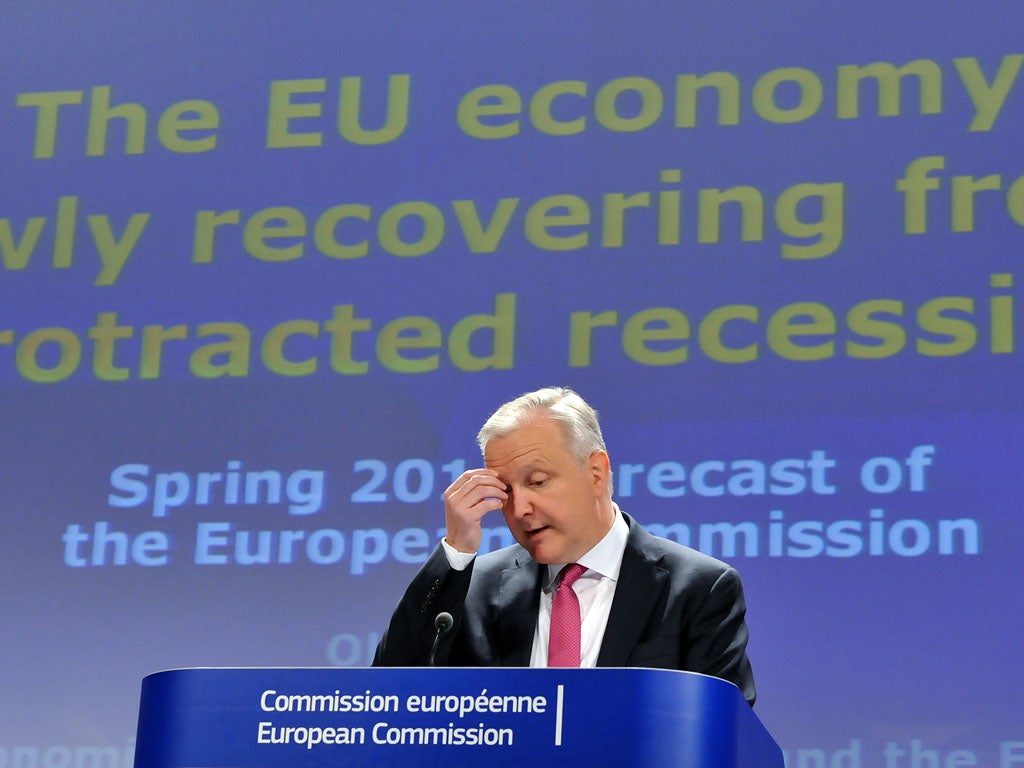Lawson’s EU lunacy is a recipe for economic disaster
While it is critical that we expand our trade with emerging economies, the EU single market continues to be crucial to British jobs and economic growth

His daughter may have written some popular cookbooks, but Nigel Lawson's call for Britain to leave the EU would only be a recipe for disaster.
If we are to sustain our fragile economic recovery, it is crucial that we do not put vital trade and investment at risk.
Lawson suggests that we must somehow choose between trade with Europe and with the rest of the world. But this is clearly absurd. We are currently on the cusp of a game-changing trade deal between the EU and the US, which will bring billions of pounds to the British economy and create tens of thousands of jobs. The US has also made it quite clear that our ‘special relationship’ would cease to be special were the UK outside the EU. Major trade agreements with India and Japan are also in the pipeline. To leave the EU now would mean turning our back on the global economy and jeopardising crucial trade and investment.
Moreover, when negotiating with the world's economic superpowers, we are far better off using the combined clout of the EU than going it alone. Leaving would mean losing the 48 global trade agreements that the EU has already negotiated. We would have to start our trade policy from scratch and from a position of weakness.
And while it is critical that we expand our trade with emerging economies, the EU single market continues to be crucial to British jobs and our prospects for economic growth. We still export five times more to the EU than to China, Brazil, Russia, India and South Africa combined. 87 per cent of small business exporters still rely on trade with the EU, compared to 11 per cent who export to China.
The UK also continues to be the top destination for inward investment in Europe. From 2011 to 2012, this investment created and secured over 112,000 jobs. Yet this investment is hugely reliant on our staying a committed member of the EU. A whopping £365 billion - half of total foreign investment - comes from other EU countries, a figure which has doubled over the past 10 years. Business leaders such as the boss of Siemens, which employs 13,500 people in the UK, have warned that British withdrawal from the EU would greatly damage the prospects for future investment from European firms.
Meanwhile, those companies from outside the EU which choose to invest in the UK do so largely because of its role as a gateway into the single market. If we were no longer a member, we would rapidly lose our position as the top destination for companies establishing their European headquarters. Investors in Britain's booming car industry would also look elsewhere if they no longer had tariff-free access to the European market. Earlier this year two of Britain's biggest car makers, Ford and BMW, warned that exiting the EU would be disastrous for the UK's economy.
At a time when government finances are tight, foreign investment provides a cost-free way to stimulate recovery and create sustainable economic growth. Withdrawing from the EU would be a reckless gamble, dramatically reducing Britain's attractiveness to foreign investors and putting thousands of jobs at risk.
Lawson's arguments suggest he is perhaps less worried about Britain's economy as a whole and more about the potential threat that EU rules pose to his friends in the City, for example the recent cap on bankers' bonuses. Yet even senior banking figures have repeatedly warned that leaving the EU would be utter "lunacy" as it would have a catastrophic impact on the UK's financial sector. London currently deals with around 40% of global euro-denominated trading, more than anywhere else in the world. Outside the EU, the UK would have no way to influence European financial legislation and ensure its economic interests are protected.
As a long-standing climate change sceptic, it is perhaps no great surprise that Lawson opposes the EU, which has put the fight against global warming high on its agenda. His climate sceptic thinktank has consistently questioned overwhelming scientific evidence, apparently choosing instead to promote the agenda of its handful of wealthy backers. He confirms the notion that Conservatives will only pursue the narrow vested interests of a rich elite, while ignoring the needs of the population at large. As Chancellor he oversaw an unprecedented rise in inequality and a disastrous period of inflation. Now, like many Tory eurosceptics, he seems to want to leave the EU only in order to get rid of minimum social and environmental standards and turn Britain into a deregulated, low-tax haven for the rich.
Liberal Democrats, both in government and in Europe, will ensure that this does not happen. We will continue to work towards building a fairer, stronger and greener economy, open to trade with Europe and the world. And when the time comes for a referendum, we will campaign passionately for the UK to remain a full member of the EU, while continuing to push for reform to make the EU more effective and accountable.
Nigel Lawson got it wrong on the economy, wrong on climate change, and is now wrong on Europe. Just as we are finally beginning to emerge from a historic recession, it would be madness to undermine our economic prospects by pulling out of the world's largest trading bloc. David Cameron should listen to the voice of British business, which overwhelmingly supports EU membership, not to the voice of Tory dinosaurs who seem unwilling to face up to the modern world.
Fiona Hall is Leader of the Liberal Democrat Delegation in the European Parliament

Join our commenting forum
Join thought-provoking conversations, follow other Independent readers and see their replies